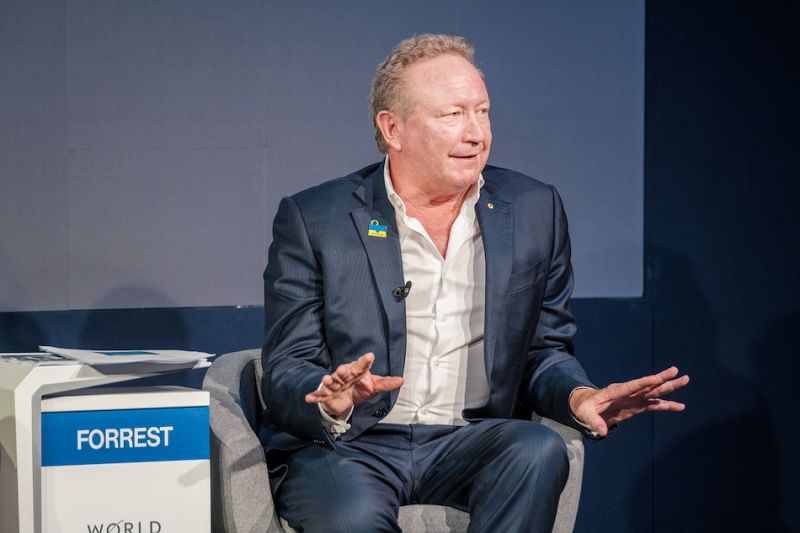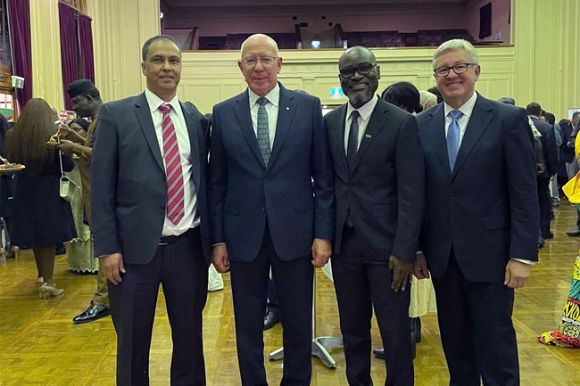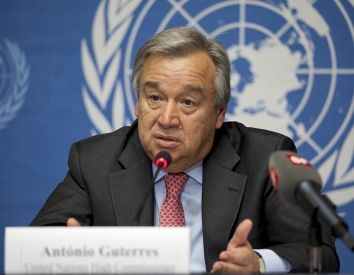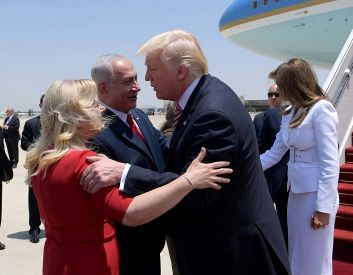Fortescue's potential investment in Morocco has raised concerns given the country's ongoing conflict in Western Sahara, writes Polisario’s Australian representative Kamal Fadel.
AS FORTESCUE METALS group chairman Mr Andrew Forrest embarks on a visit to Morocco to advance investment opportunities, significant concerns arise from the people of Western Sahara.
These concerns are rooted in fears that Fortescue’s involvement in the region could financially bolster Morocco’s occupation and undermine United Nations (UN) decolonisation efforts. Fortescue’s investments raise serious ethical and moral implications along with potential risks for the region's people.
Western Sahara – a territory rich in natural resources such as phosphates, iron ore and potential oil reserves – has been occupied by Morocco since 1975. This occupation persists despite a 1975 ruling by the International Court of Justice (ICJ) denying Morocco sovereignty over the region.
The territory is recognised by the United Nations as a non-self-governing area, highlighting the need for a decolonisation process that respects the rights and wishes of the Indigenous Sahrawi people.
The Saharawi Republic (SADR) – declared by the Polisario Front in 1976 following Spain's withdrawal from Western Sahara – has been recognised by a number of countries, particularly in Africa and South America.
The SADR was admitted to the Organisation of African Unity (OAU) in 1984, which is now known as the African Union (AU).
In 1991, a UN-brokered ceasefire temporarily halted hostilities, but this agreement collapsed in 2020, reigniting the conflict. The ongoing occupation has led to severe human rights abuses against the Sahrawi people, including arbitrary detention, torture and restrictions on freedom of expression.
Activists and journalists are particularly vulnerable to these abuses, painting a grim picture of the human rights situation in the occupied regions.
As Fortescue explores potential investments in Morocco, the Sahrawi people fear such involvement could have dire consequences.
We believe Fortescue should avoid engaging in resource exploitation in Western Sahara and not get involved with the authoritarian regime in Rabat, which, in a flagrant violation of international law, invaded and occupied Western Sahara by force.
The Sahrawi people worry that Fortescue’s investments could inadvertently provide funds to the Moroccan regime, enabling it to continue its occupation and oppression.
This financial support could embolden Morocco in defying UN decolonisation efforts, further entrenching its control over Western Sahara.
By engaging with Morocco, Fortescue could also undermine the UN’s efforts to decolonise Western Sahara, Africa’s last colony. This would not only defy international legal and ethical standards but also exacerbate the suffering of the Sahrawi people, who have endured over 50 years of occupation and exile.
Involvement in Western Sahara carries significant ethical and legal challenges for companies like Fortescue. The Australian Department of Foreign Affairs and Trade also advises companies to consider the legal implications of dealing with resources from non-self-governing territories.
International bodies emphasise the need for the consent of the Sahrawi people before exploiting their resources. Courts in EU, UK, South Africa and New Zealand have ruled that Western Sahara is not part of Morocco and that exploiting its resources without the consent of its people is a violation of international law.
Engaging in resource extraction without this consent could be seen as a form of complicity in the occupation, raising serious ethical questions about corporate responsibility. Moreover, it risks damaging Fortescue’s reputation as a company committed to environmental sustainability and ethical practices.
It is hoped Fortescue will stay clear of the illegally occupied territory of Western Sahara and not get involved in the plunder of its resources. We don’t want Fortescue’s funds to be propping up the Moroccan army, which is persecuting and killing our people.
As Fortescue navigates its investment decisions in Morocco, it faces a critical juncture that demands careful consideration of ethical and legal responsibilities.
By aligning its actions with its stated values, Fortescue can set a powerful example of corporate responsibility and respect for human rights.
Fortescue’s potential involvement in Morocco presents a complex challenge that intersects with issues of international law, human rights and corporate ethics.
By carefully considering the ethical and legal implications, engaging with stakeholders, and upholding its commitment to environmental and philanthropic values, Fortescue can contribute positively to global efforts towards justice and decolonisation.
The path forward requires not just business acumen but a deep commitment to doing what is right for the Sahrawi people and the broader global community.
Kamal Fadel is the Polisario Representative in Australia and New Zealand. You can find him on Twitter: @Alfudail.
Related Articles
- The time is now: Western Sahara must gain independence
- Trump and U.S. betray the people of Western Sahara
 This work is licensed under a Creative Commons Attribution-NonCommercial-NoDerivs 3.0 Australia License
This work is licensed under a Creative Commons Attribution-NonCommercial-NoDerivs 3.0 Australia License
Support independent journalism Subscribe to IA.















